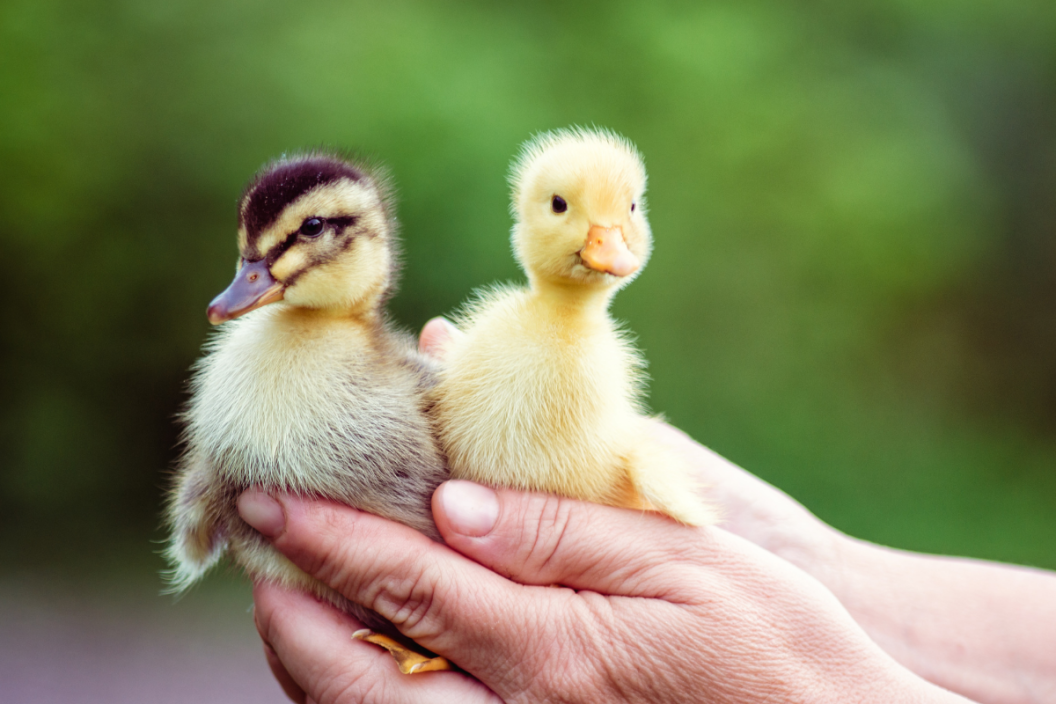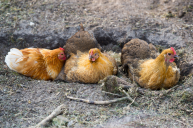Ducks come in all shapes and sizes, but no matter which breed you pick up, they all need a home. Ducks, like every animal, have preferences for the type of home they live in, but first time duck owners might not know what's best for their feathered friends. With a little bit of help, you can get your duck coop right the first time and start your duck off on the right webbed foot.
Ducks make a great choice for a backyard flock, and strangely, duck eggs might even be healthier than chicken eggs. However, their housing needs are a little different than backyard chickens or other poultry. Here are a few tips to get you ready to raise ducks in your backyard or improve their current living conditions.
1. Straw Bedding
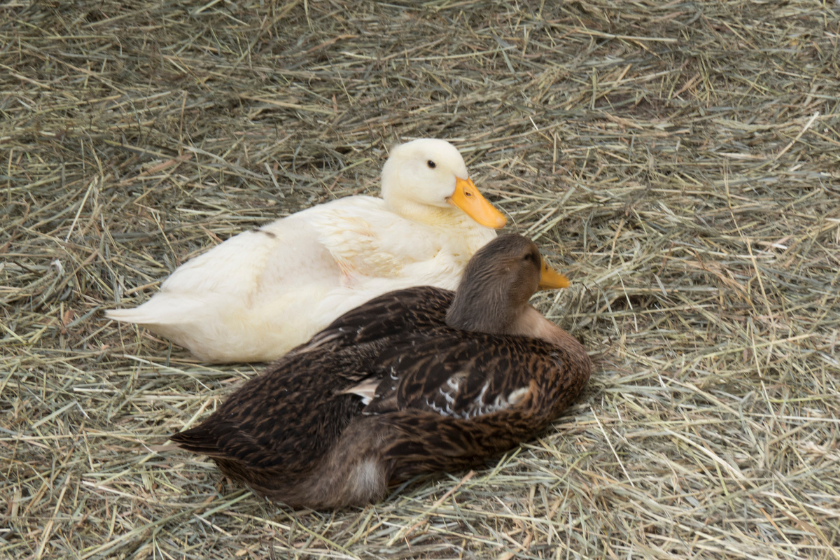
Straw bedding is best for your duck coop. It insulates well, composts easily, produces little dust, and makes a great duck nest. Large flake wood shavings or pine needles also make good duck coop bedding.
2. Tarp or Floor Tiles
For easy cleaning and to preserve your coop floor, put a tarp down before any bedding or some peel and stick floor tiles on the floor and walls. Also, be sure to paint or stain the outside of the coop to help protect the coop and extend its service life.
3. Low Down Duck Nests

Nest boxes in your duck coop should be about 14 square inches, on the floor level, and give you easy access to collect eggs from the coop door or from an external nesting box access door. Ducks do not need or use hanging nesting boxes like chickens.
4. Ground Level Coop
Your duck coop should be pretty much ground level. Not comfortable with having it directly on the ground? At most, you can raise it on cement blocks and have a gently sloping ramp into the coop.
5. Wide Coop Door
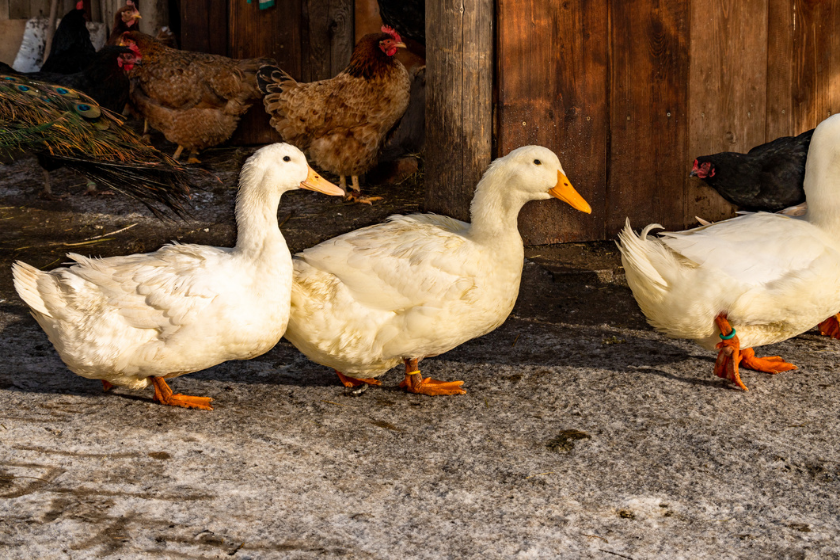
Ducks like to do things in groups, including going through duck doors (watching a duck run is so delightful!). To prevent a stuck duck, make the duck coop door two or more ducks wide. They're not fans of single-file, and they really might get stuck or at the very least jostled. A wider coop door makes for calmer entrances and exits as well as calmer birds.
6. Water
Ducks don't need actual duck ponds or swimming pools, but they do need (at a minimum) to be able to dip their entire head into the water. Ducks dunk their heads into water in order to clean their eyes and groom themselves (and sometimes use it as drinking water).
Provide water with a couple of large buckets, a kiddie pool, or better yet, a wading pool or stock tank (each of which needs a duck ramp). Since ducks like to splash, keep water some distance from their food and away from coop bedding to prevent water spillage.
7. Feed
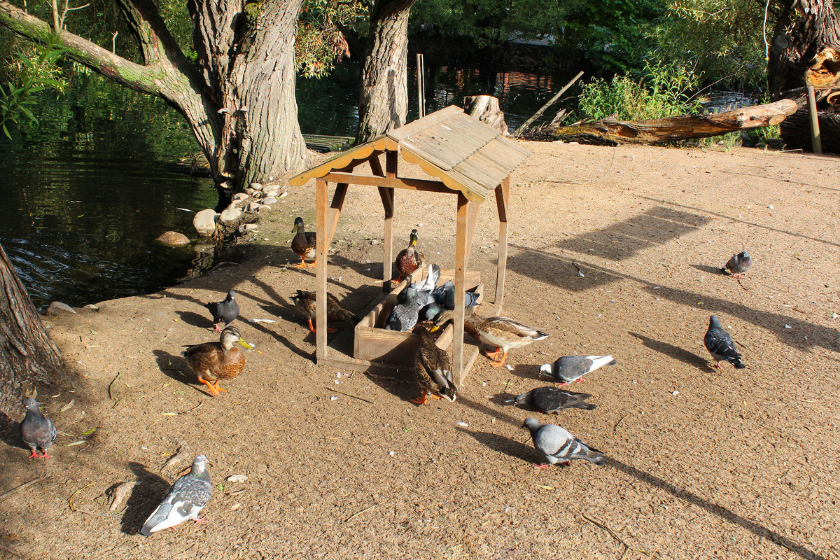
Many ducks eat chicken layer feed and forage for insects and plants. Keep in mind that duckbills are quite different from chicken beaks and make sure feeder openings are large enough. Keep food and water some distance from each other to reduce the mess ducks can make mixing water and food.
If you can't store feed inside your coop, you can use galvanized metal trash cans to store food outside or in your garage to keep it safe from vermin and weather.
8. Ventilation
Like chickens in a chicken coop, ducks need good coop ventilation and protection from the prevailing wind.
Ducks produce a lot of moisture through breathing and through their manure. Unless this moisture is carried out of the coop with good overhead ventilation, it can cause mold problems, respiratory issues, and frostbite in cold climates.
Your ducks need a dry coop, not a damp coop. Provide a dry duck coop by having plenty of ventilation overhead (to provide airflow), but be sure to shelter your ducks from wind and drafts. In New England, we site our coop facing south with ventilation overhead and to the south side of the coop. You may want to consider locating the duck coop near a compost pile so it's easier to clean out the coop and compost bedding.
9. Predator Protection

The duck coop should be a safe place for your ducks and secure from predators, particularly at night.
A duck's main predator is likely raccoons, but they can also fall prey to weasels, foxes, and other animals. Raccoons are smart and can open latches. Ask at the hardware store about a secure raccoon-proof latch.
Predator-proof your duck house with secure window openings covered with hardware cloth wire mesh (not chicken wire—never use chicken wire as a protection against raccoons) and either shut them in at night with a coop door or a securely fenced duck pen that can keep out predators. A secure fence is dug well below ground and provides overhead protection from climbing predators.
10. Space Requirements
How big does your duck coop need to be and how many ducks can it hold? How much floor space does each bird need in the coop? Plan for four to six square feet of floor space per adult bird (two feet by two or three feet). The minimum space necessary is three square feet per mature laying duck in your duck coop (about 18 inches by 18 inches per bird).
Buy or build as big a coop as you can. If your coop is too small, you'll likely have to expand at some point. While we are on the topic of space, it's best to let your ducks free-range when possible instead of keeping them in a yard all the time.
There you have it: 10 tips for the most perfect duck coop. If you are thinking about raising ducks, there are many good reasons to choose ducks instead of chickens.
We wish you all the best on your future duck adventures and making a home for them!
What's your favorite breed of duck? Let us know on the Wide Open Pets Facebook page!
This article was originally published May 23, 2019.
